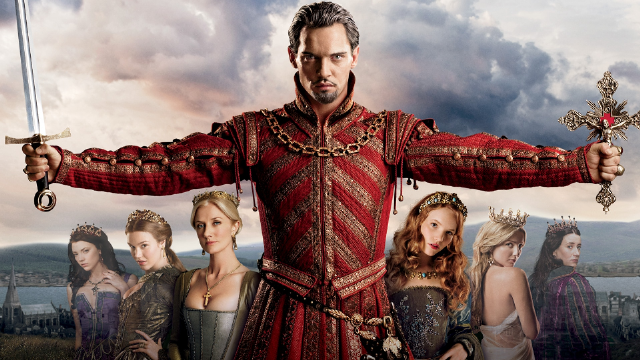Henry VIII and the split between faith and reason
One of the better original series currently streaming on Prime Video is The Tudors that originally ran on Showtime from 2007 to 2010. The production and acting is first class. It’s a great portrayal of the compelling reign of Henry VIII, his many wives, especially Anne Boleyn, who ignited Henry VIII’s decision to break with the Catholic Church and finally, with of how Christianity played the central role in European lives during the medieval era.
The Tudors represent a slice of history of the early tension between church and state, a tension that Henry VIII helped start but then brings to an end by making himself both the head of state as well as the head of the Church of England. Henry VIII and his separation from the Catholic Church coincided with Martin Luther’s Reformation, the religious revolution that actually led to the secularization of society, i.e., religion no longer was central in the daily life of Europeans that eventually gave way to the pervasive atheism of the modern era throughout the western world.
Religious authority during this period was watered down because of the creation of so many new Protestant denominations along with the Catholic Church. There were also many wars of religion in the 16th and 17th centuries that came to a conclusion with the Peace of Westphalia (1648). This marked the origin of the modern state when the borders of new European nations were agreed to with each one determining what religious denomination it would adopt.
Eventually the authority of the governments of the new countries superseded religious authority that put it on in the path of playing a secondary role in everyone’s lives. When that happened, atheism filled the vacuum for many, especially when the mechanization and demands of the industrial revolution became central in the lives of so many rather than religion. At the same time and more importantly, scientific truth eroded the strength and preeminence of religious truth, and the division between the two has been growing wider ever since.
It was during the Enlightenment, aka the Age of Reason, the historical period that placed reason over Revelation as a result of an intellectual revolution that began with Renes Descartes and went to Immanuel Kant and then to GWF Hegel, all of whom laid down the foundations of a new secular worldview that excluded religious truth. From the introduction to the book The Unintended Reformation: How a Religious Revolution Secularized Society:
Before the Protestant Reformation, Western Christianity was an institutionalized worldview laden with expectations of security for earthly societies and hopes of eternal salvation for individuals. The Reformation’s protagonists sought to advance the realization of this vision, not disrupt it. But a complex web of rejections, retentions, and transformations of medieval Christianity gradually replaced the religious fabric that bound societies together in the West. Today, what we are left with are fragments: intellectual disagreements that splinter into ever finer fractals of specialized discourse; a notion that modern science — as the source of all truth — necessarily undermines religious belief; a pervasive resort to a therapeutic vision of religion; a set of smuggled moral values with which we try to fertilize a sterile liberalism; and the institutionalized assumption that only secular universities can pursue knowledge.
Author Brad Gregory makes the case that the Reformation led to so many religious truth claims that it in turn led to moral relativism by the destruction of what had been one universal truth claim throughout all of Christendom. Gregory’s main point of the Reformation secularizing society is that with all the truth claims that emerged during this time, atheism became part of the mix and eventually pushed all religious truth claims to second-class status where those of science and technology were more widely accepted in the emerging modern era that continues to this day.
Reason had become untethered from faith and the new rationalism was amoral since it was not grounded in a biblical moral foundation. The atheistic regimes of Stalin, Hitler, and Mao were all grounded in this new rationalism of the modern era by utilizing the new modern technologies in attempting to build their visions of utopia. The result of their “rational” social projects were based on godless ideologies that led to the bloodiest and deadliest era in human history during the 20th century. To quote Dostoevsky, “Without God, everything is permissible.” Or as Frederich Nietzsche put it, “When one gives up the Christian faith, one pulls the right to Christian morality out from under one’s feet.”

Image: Showtime
Read More: Henry VIII and the split between faith and reason

